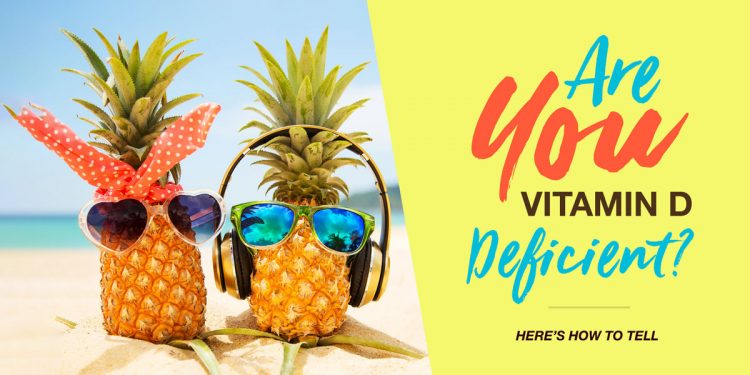When you were a kid, did your parents keep telling you to drink milk every day for getting strong bones? We have all grown up hearing this, but do you know, the calcium in milk makes you strong only when you have optimum levels of Vitamin D in your body!
Vitamin D is one of the most important micronutrients that is required by the body for efficient functioning. It is mainly essential for bone and skeletal health as it helps the body absorb calcium from your diet. If Vitamin D levels are low, calcium would start moving into the bloodstream instead of getting deposited in the bones.
Apart from this, there is a multitude of other benefits that this vitamin offers, let’s get to know those before moving on to the symptoms of Vitamin D deficiency.
Why is Vitamin D Important?
Vitamin D is also known as the “sunshine vitamin” as it is produced in response to your skin being exposed to sunlight. Yes, you read that right, you make it!
Vitamin D functions more like a hormone since every cell in your body has a receptor for it. It is essential for a range of bodily functions including:
- Keeping your bones strong
- Aiding cell growth
- Reducing bone loss and fractures
- Helping the body in absorption of calcium, phosphorus, magnesium, and zinc
- Boosting your immunity to flu
- Reducing inflammation
Deficiency of Vitamin D can lead to a loss of bone density, which can contribute to Osteomalacia (softening of bones), Osteoporosis and fractures (broken bones) in adults, and Rickets in children. It is also linked to a range of other serious conditions including Diabetes, Infections and auto-immune disorders, multiple sclerosis, etc. So, now you know how crucial it is for you to have your vitamin D levels in place. Let us now get familiarised with the signs and symptoms that can help identify if your body is short on vitamin D.
Symptoms of Vitamin D Deficiency
Majority of the people do not realize they are Vitamin D deficient as the symptoms are generally subtle and easy to dismiss due to many underlying reasons.
Here are 10 warning signs that would help you know if your Vitamin D levels require attention:
While all nutrients are important for the body, certain nutrients are touted as key especially when it comes to immunity, Vitamin D is one of them. It supports your immune system which in turn, helps your body fight off viruses and bacteria that cause illness. However, a lack of Vitamin D can make you vulnerable to constant infections and health problems.
#1 Falling Sick Often
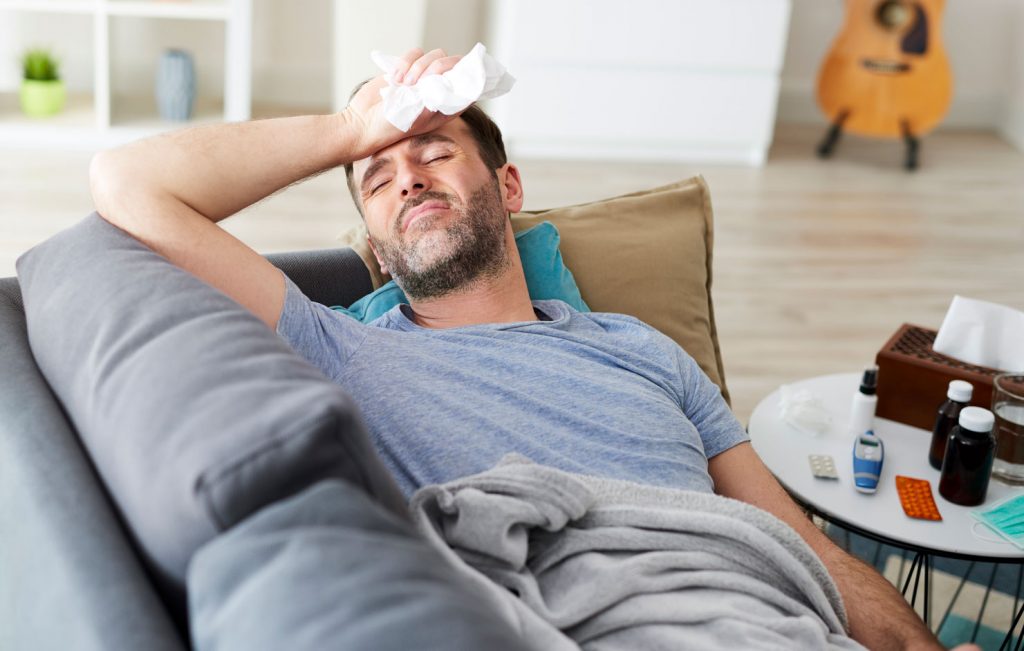
Do you keep experiencing those dreadful cold and flu symptoms time and again? If yes, then low vitamin D levels could be a contributing factor!
While all nutrients are important for the body, certain nutrients are touted as key especially when it comes to immunity, Vitamin D is one of them. It supports your immune system which in turn, helps your body fight off viruses and bacteria that cause illness. However, a lack of Vitamin D can make you vulnerable to constant infections and health problems.
#2 Bone Pain and Fractures
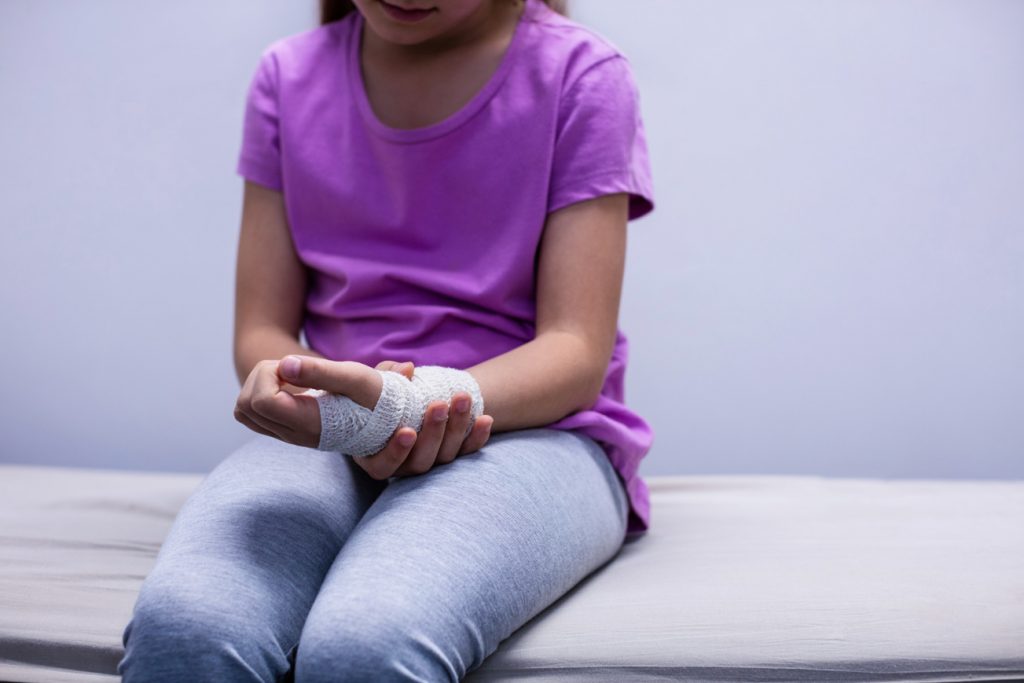
Vitamin D deficiency leads to long lasting body aches and fractures.
As an adult, your bones are no longer growing, but new bone tissue constantly replaces the old. Severe deficiency of vitamin D interferes with this replacement process, leading to the weakening of bones.
The reason behind this is that Vitamin D helps in maintaining bone strength by supporting the absorption of Calcium. The low Vitamin D levels cause less calcium to be deposited in the bones which in turn, causes pain and makes the bone more susceptible to hairline fractures.
#3 Muscle Pain or Cramps
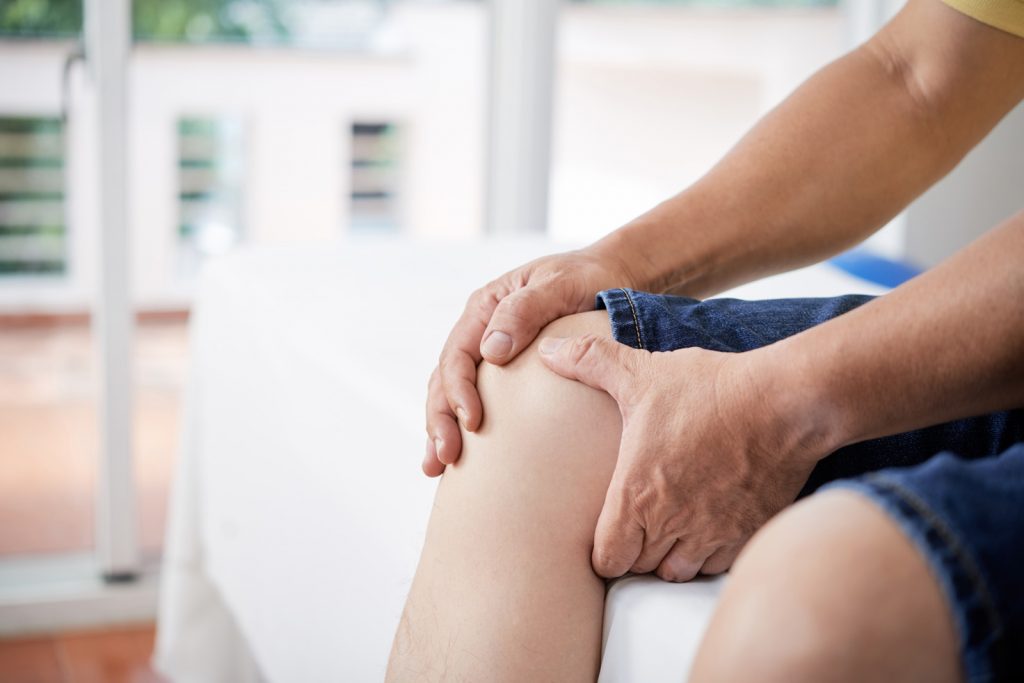
Do you usually feel a sensation of heaviness in your legs or find it difficult while climbing stairs, or getting up from a chair? Having aching muscles without exerting much, can again be due to inadequate Vitamin D levels.
We all get confused between muscle pain and bone pain. Let’s understand the difference, muscle pain is concentrated in a particular position and usually gets aggravated by exercising. However, bone pain is usually deep and penetrating, and commonly results from an injury.
#4 Depression
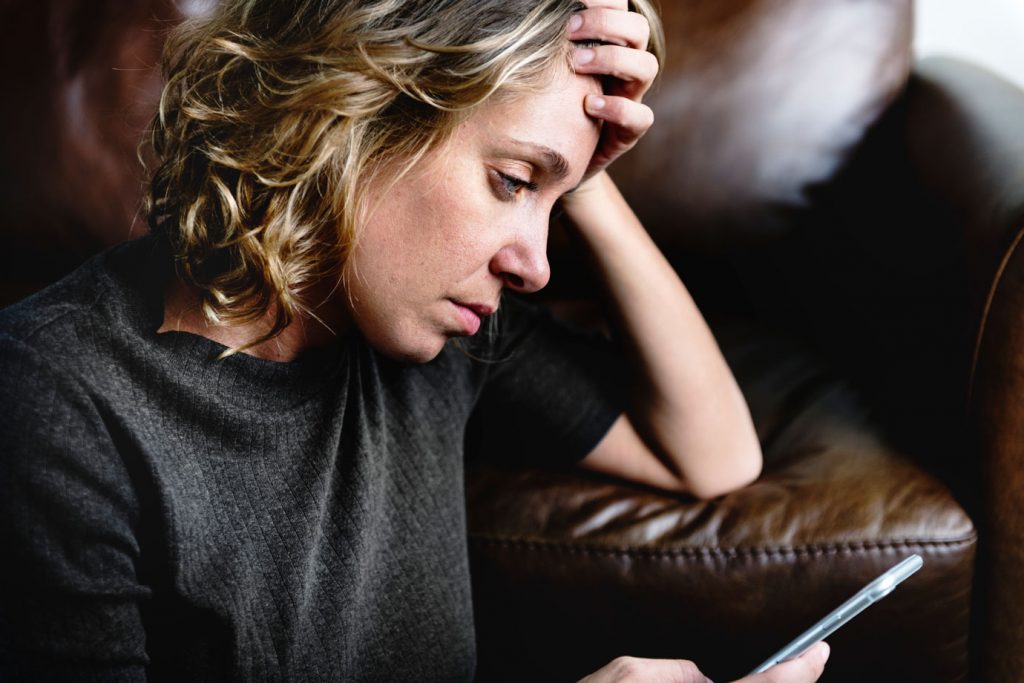
Believe it or not, the sunshine vitamin is linked to your mood being sunny or not-so-sunny! There are Vitamin D receptors in the brain that produce a chemical called “Serotonin” or the “happy chemical”, which affects our feelings of happiness.
As you know Vitamin D is mainly activated in your skin by sunlight, what if you stay in a place that sees less sunlight compared to the global averages? The people living in such areas are usually prone to a mood disorder called “Seasonal Affective Disorder (SAD)” which results in symptoms of depression when there is negligible sunshine.
To tackle this problem, people in Alaska/North Pole are advised to obtain Vitamin D through other sources including diet and supplements. They are also encouraged to purchase UV light lamps—devices that emit therapeutic light and help them maintain their vitamin D levels during winters.
#5 Fatigue and Tiredness

Do you usually eat right, sleep for a good 7-8 hours but still feel tired all the time? Vitamin D is necessary for the proper functioning of skeletal muscles and scarcity of this nutrient can lead to extreme fatigue thereby, effecting your drive to stay active.
So listen to your body! If you constantly feel sluggish, consult your doctor as you might need to stock up your Vitamin D levels.
#6 Impaired Wound Healing
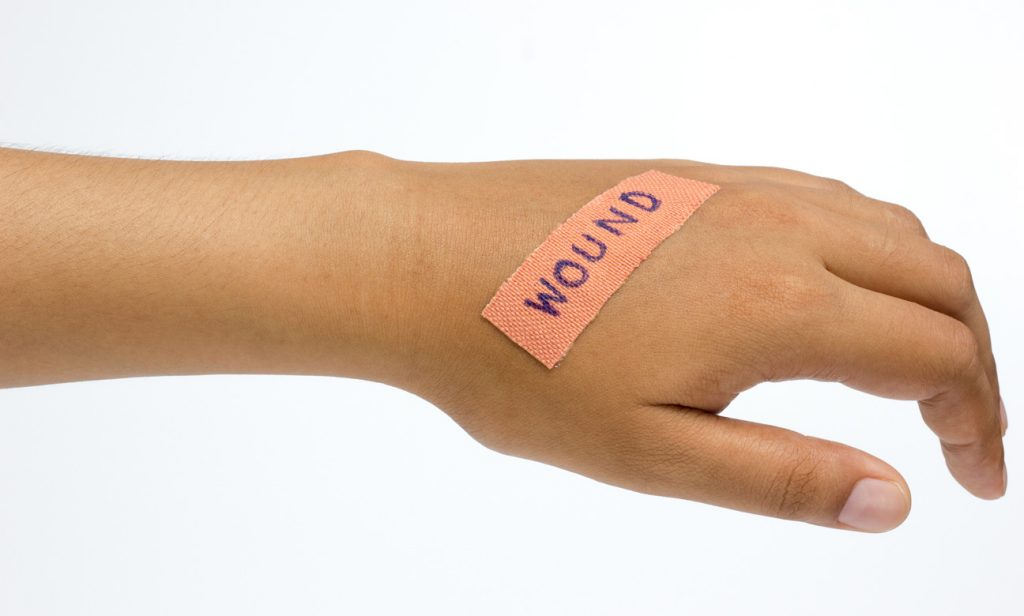
If even a minor scrape or a cut takes forever to heal, it might be a sign to get your levels checked, as slow wound healing is another known symptom of Vitamin D deficiency.
Vitamin D is known to regulate growth factors and other compounds that form new tissues and in turn, plays a vital role in wound healing.
#7 Reduced Endurance
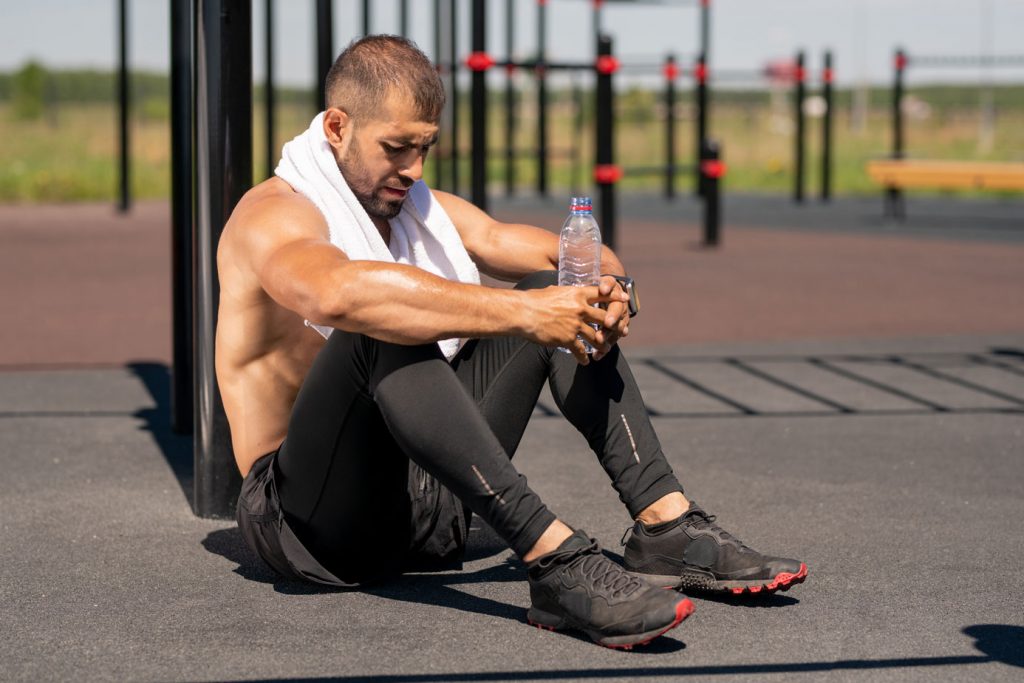
If you are physically active and are seeing your stamina decrease for no apparent reason, it might be because you have low vitamin D levels.
Let us get to the science behind this, after doing aerobics or endurance exercises, your immune system gets suppressed and the body becomes vulnerable to infections. At this time, good vitamin D levels help in fighting off the bacteria and viruses that can lead to these infections.
#8 Weight Gain
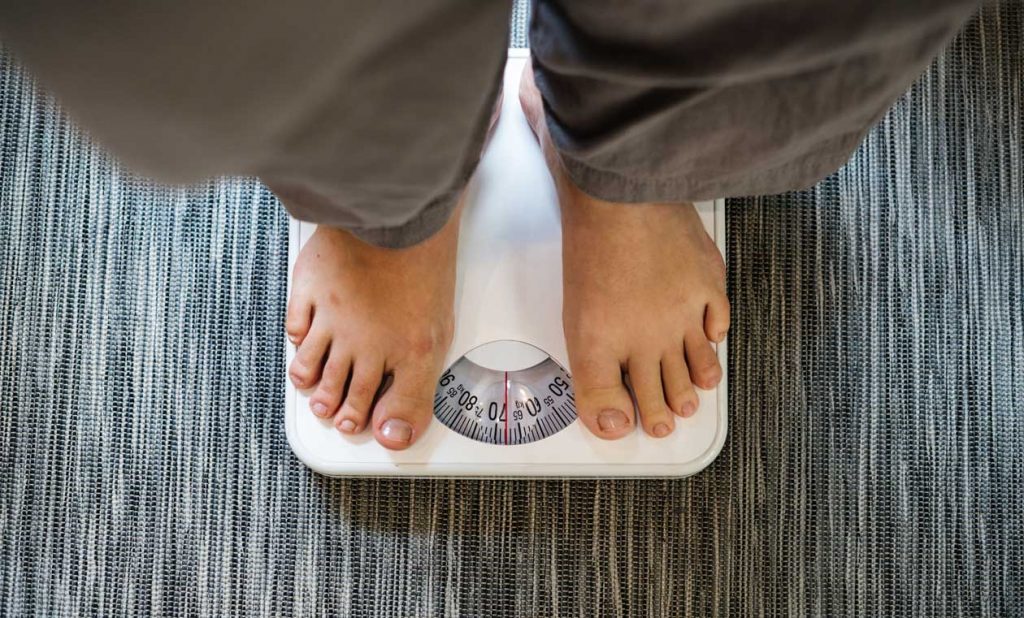
As per a recent study, people with large waistlines and high levels of belly fat are more likely to have low Vitamin D levels.
If you are maintaining a healthy lifestyle and still gaining weight, it could be due to various underlying health conditions, vitamin D deficiency being one of them.
#9 Hair Loss
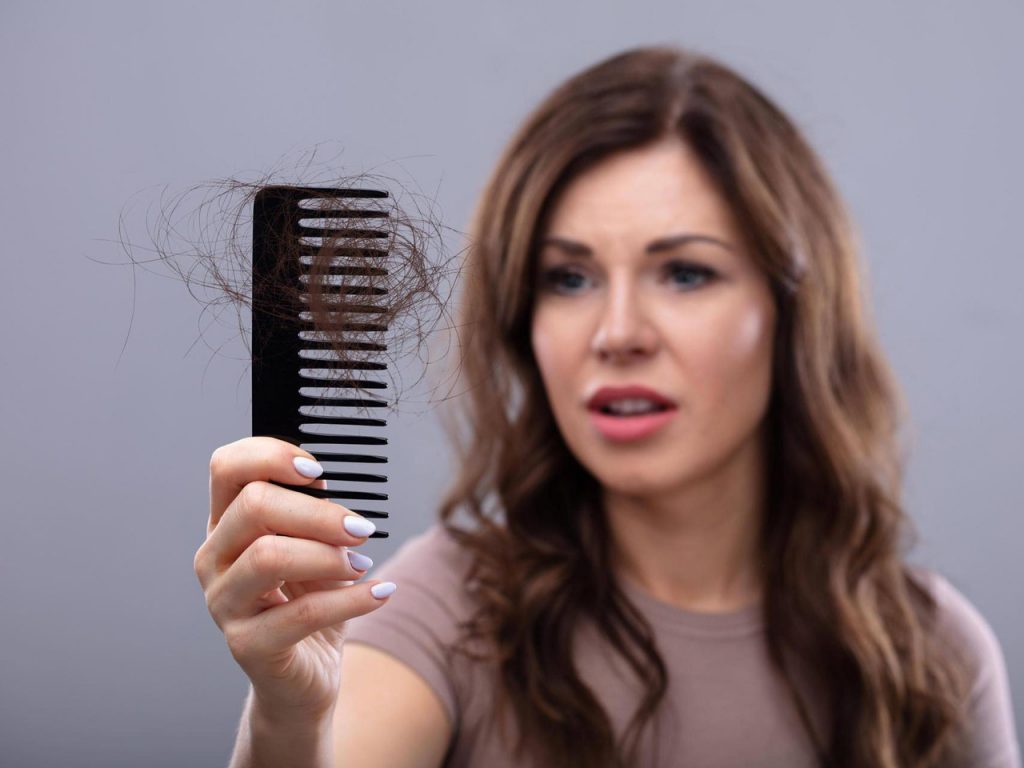
Vitamin D stimulates the hair follicles to grow and new hair follicles help the hair to maintain its thickness and prevent existing hair from falling out prematurely.
Hair loss can be due to many reasons but it also a symptom of Vitamin D deficiency. It is linked to conditions like Alopecia Areata which is also known as spot baldness.
#10 Irregular Periods
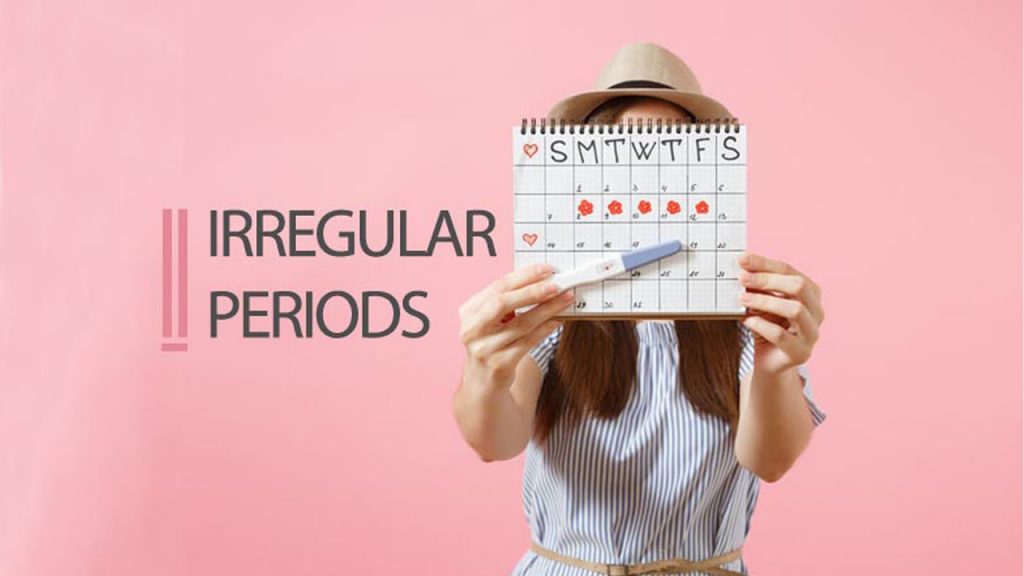
Almost 30-40% of women face problems with irregular periods, which is a common symptom of polycystic ovary syndrome (PCOS).
Research suggests that Vitamin D can help regulate ovulation and getting sufficient amounts of it can benefit people with PCOS.
If these symptoms seem relatable to you, do consider voicing your concerns to your health practitioner and getting your Vitamin D levels checked.
Vitamin D Deficiency Causes – Are you at Risk?
Vitamin D deficiency is fairly common nowadays however, certain people are more at risk compared to the others. Read on to know if you fall into this category and unravel the possible Vitamin D deficiency causes:
You Prefer Staying Indoors

Do you usually shun the sun? use sunscreen, or cover up most of your skin when outdoors? If yes, then you might need to get your Vitamin D levels checked, especially if you are facing any of the symptoms mentioned above.
Although sunlight is the best source of Vitamin D, exposure to it is a balancing act, too little and you become Vitamin D deficient while, too much of can cause sunburn, premature ageing, and also increase the risk of skin cancer.
Try getting at least 15 minutes of sunlight between peak intensity hours from 10 AM to 3 PM, two to three times a week, to get a sufficient amount of Vitamin D.
You have a Dark Skin Tone
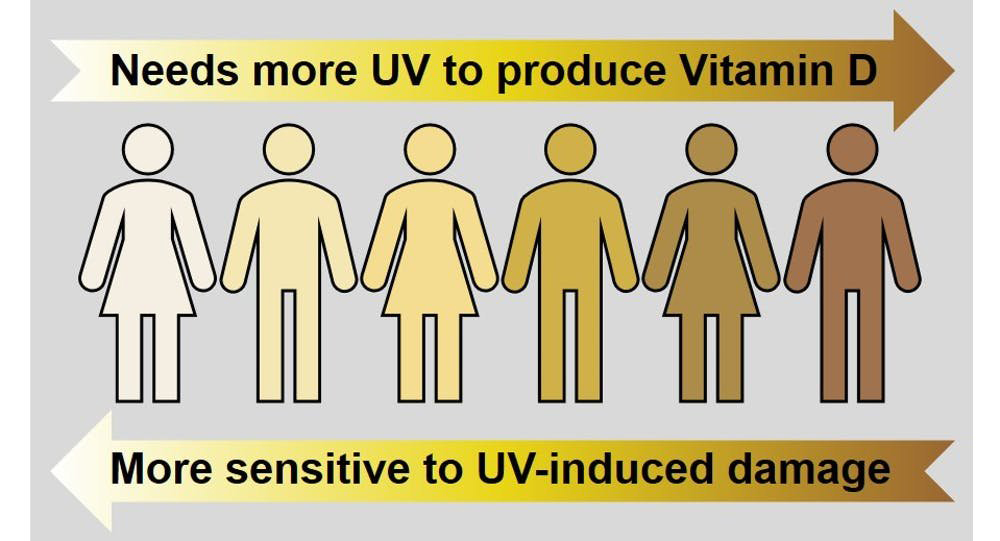
Dark complexion is due to large amounts of a pigment called Melanin. It is this pigment that reduces the skin’s ability to produce the sunshine vitamin. So, people with darker skin tones are more likely at risk of Vitamin D deficiency.
You are Elderly

Seniors are at a greater risk of being Vitamin D deficient as at their age, the ability to synthesize Vitamin D from sunlight reduces. Also, since this vitamin is activated in the kidney and liver, this function decreases as a person ages.
As per research, people over the age of 65 produce much less Vitamin D than a younger person with the same sun exposure.
You are Unable to Process Vitamin D
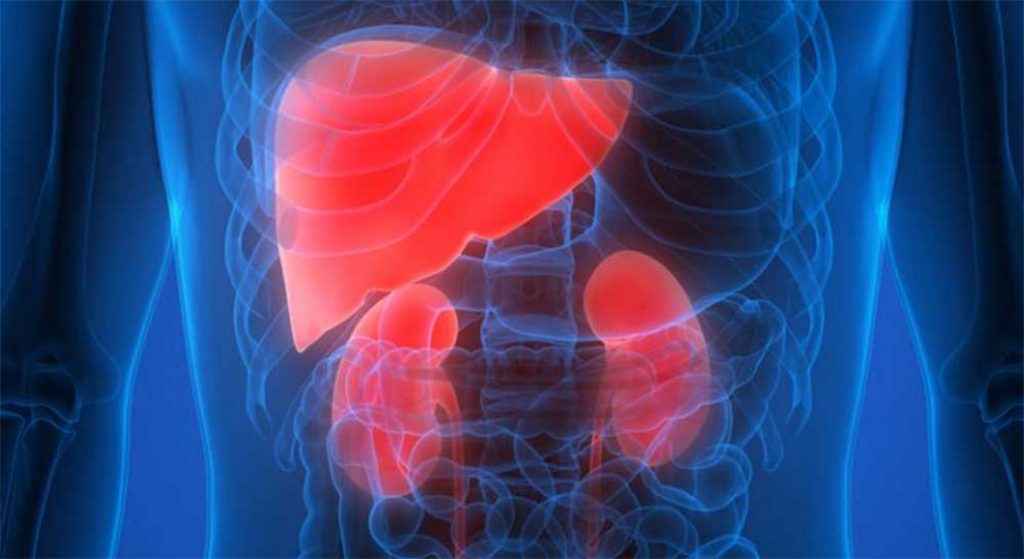
Impaired absorption of Vitamin D may be due to an underlying kidney/liver-related condition. The liver and kidney have important enzymes that change vitamin D from sun-exposed skin or food to the biologically active form of vitamin D. People with chronic kidney and liver disease are at an increased risk of low active vitamin D levels due to decreased levels of these enzymes.
You are Obese
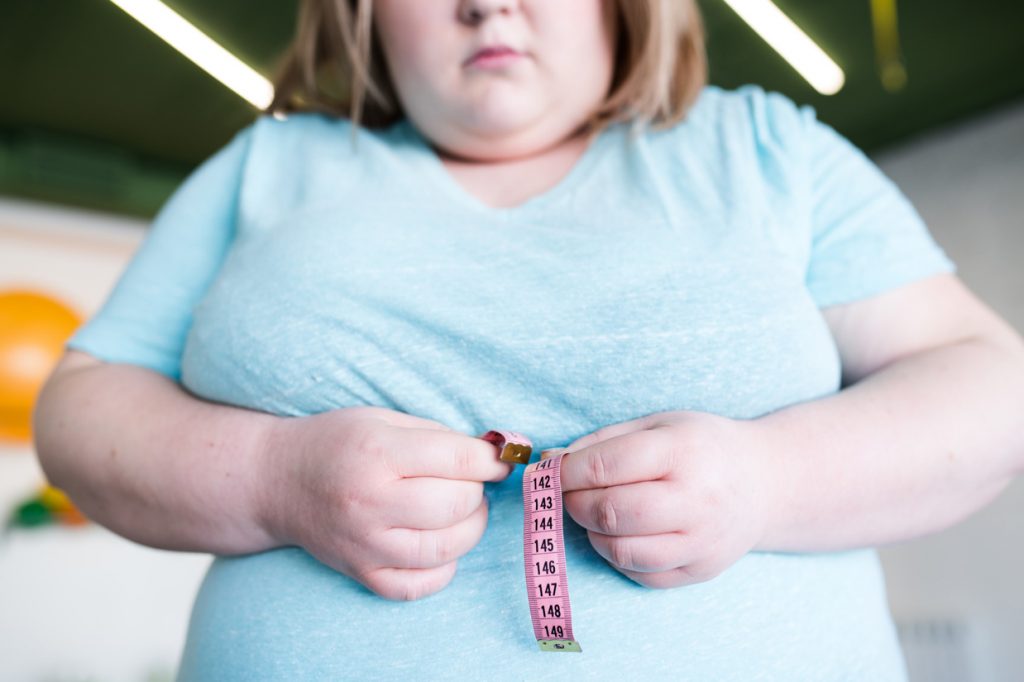
Vitamin D is one of the fat-soluble vitamins (others being A, E, and K), meaning that it dissolves only in fat and is stored in fat cells throughout the body.
This indicates that if you are overweight or obese, your body needs a lot more Vitamin D that an average person.
Treatment for Vitamin D Deficiency
The recommended dietary allowance (RDA) of vitamin D is said to be 600 international units (IU) for people aged 1-70, and 800 IU for adults older than 70 years as more amounts are needed to optimize bone health.
You can get vitamin D by the following three ways:
- Through foods you eat
- From dietary supplements
- By natural synthesis in the body through exposure to the sun
Vitamin D occurs naturally in many foods including fatty fish, egg yolks, fortified dairy products, etc. To know about the Vitamin D sources, refer to 7 Best Vitamin D Rich Foods.
Some of you might not be getting the required sunlight, maybe because of your location, lifestyle, or health. Also, some of you might be following a strict vegan diet and would not be able to incorporate the mentioned Vitamin D sources in your meals. If that is the case then, do not fret. There are Vitamin D supplements available in the market for your rescue! Speak to your doctor about the best supplements and dosage that could help meet your specific Vitamin D requirements.
As you know Vitamin D affects just about every tissue in your body- not just your bones, please do not turn a blind eye towards these Vitamin D deficiency symptoms. If you can then, go out and soak up some sun, it is as simple as that and would do wonders for your health!



